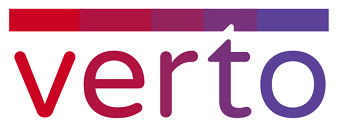Verto is an extension of the Python Markdown package, which allows authors to include complex HTML elements with simple text tags in their Markdown files.
Verto allows for an author to quickly include images and content and display them in a panel (similar to a Bootstrap Collapsible Panel) with the following markdown:
# Example Header
Example Paragraph
{panel type="example"}
# Example Panel
{image file-path="http://placehold.it/350x150" caption="Example Image"}
{panel end}
While Verto has many configuration options it can be used immediately
with little code. For example, if the previous markdown is saved in the file
called example.md then the following would convert that file and print the
output to stdout:
from verto import Verto
text = open('example.md', 'r').read()
converter = Verto()
result = converter.convert(text)
print(result.html_string)Installation and usage documentation for Verto can be found on
ReadTheDocs, and can also be built from the documentation source
within the docs/ directory of the development distribution.
Verto is licensed under the MIT License. Read the license file for more details.
Have a bug or a feature request? Please first search for existing and closed issues in our issue tracker. If your problem or idea is not addressed yet, please open a new issue.
Where is the changelog?
The changelog is available within the documentation.
How do I install the development version as local package?
$ git clone https://github.com/uccser/verto.git$ cd verto$ pip3 install .
